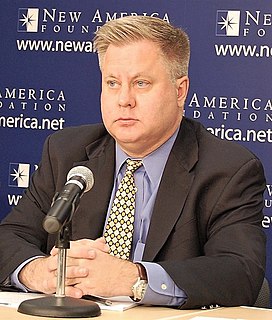A Quote by Christopher Hitchens
Most of the utopian community ideas actually are religious. They're based more on the idea of the monastery than the commune.
Related Quotes
I sell ideas. Actually, if you think about it, everything is really no more than idea. The past is nothing more than a memory, which is one kind of idea. The future is still a hope, another kind of idea. The present is fleeting and becomes a memory before you can put your hands on it. All ideas. I sell ideas.
Through my Faith-Based and Community Initiative, my Administration continues to encourage the essential work of faith-based and community organizations. Governments can and should support effective social services, including those provided by religious people and organizations. When government gives that support, it is important that faith-based institutions not be forced to change their religious character.
We are driven to confess that we actually care more for religion than we do for religious theories and ideas: and in merely making that distinction between religion and its doctrine-elements, have we not already relegated the latter to an external and subordinate position? Have we not asserted that "religion itself" has some other essence or constitution than mere idea or thought?
You know, an idea is just an idea. There seems to... the kind of epiphanies that you have, like the little sudden bursts of light, they're very small and they're very short and it's the pursuit of the idea that's the important thing. . . . I know a lot of people who have way better ideas than I do that-much more frequently than I do that just can't sit down and actually do it. Ideas are such are a little overrated really; it's the work behind the idea that's the important thing.
On the conservative side, today's libertarianism is far more dogmatic and devoid of qualification than the liberalism of Adam Smith or J.S. Mill. Like Marxism, libertarianism is a utopian worldview based on an economic-determinist vision of history. Unlike Marxism, libertarianism is highly specific in its predictions about the transition to the utopian world order, rendering it vulnerable to fact.
Most religious people in America fully embrace science. So the argument that religion has some issue with science applies to a small fraction of those who declare that they are religious. They just happen to be a very vocal fraction, so you got the impression that there are more of them than there actually is.


































